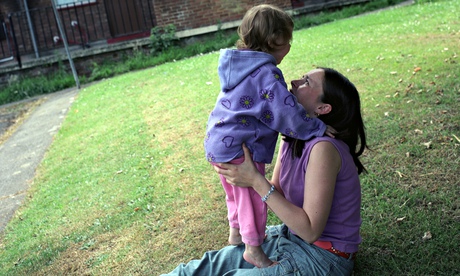I have been employed as a permanency caseworker with Child Welfare for eight years. I have worked nearly 30 years in some capacity with children and/or families. There are times when I feel the weight we carry due to being underfunded. Sometimes I also think I'm too old for this work and long to retire. But I'm still here, actively engaged in my work with children and families. This article from The Guardian very much illuminates some of the reasons why. Bless the children. Bless families. Bless us all. ~ Molly
**************
This is not a short-term career and the profession needs experienced
workers, so give it a good run
workers, so give it a good run

You will not be bored
No two days will ever be the same. The variety of children, families, complex problem-solving, situations and locations will keep your brain moving at a pace. You will be in a process of continuous learning for as long as you stay in the job.
What you will learn about yourself
The physical and emotional demands placed on you will highlight levels of personal resilience and skill that you never knew you had, or were capable of. When life throws other hardships at you, you’ll be amazed at your ability to resolve them. You will develop a high level of emotional intelligence, and perceptive skills that you never thought possible.
Team spirit
Daily life in busy child protection teams builds relationships with colleagues that will see you through the challenging times, and bring you together in a way that no ordinary office life can. Remember, you will encounter cases that change the way you practise, and might even alter your whole outlook on life. Working in this environment will build relationships that stay with you through your social work career.
You are privileged
To be involved in a child or family’s life at what is often a crisis point, and being key in developing changes and promoting a good outcome – whatever that might be – is an absolute privilege. Treat that with respect, keep those key values close to you and you will always feel honoured to be in such a position.
Feel proud
You work for the local authority, on the frontline, at the heart of making a difference and achieving change. That is something to feel proud of, there are many who would not tread that path, and for those who do, be proud of what you do and where you work. Talk positively of your role; remember “positive talk encourages positive talk”.
Career opportunities
There are lots of career opportunities, whether you want to be a social worker or move to management. Child protection will give you a breadth of knowledge that will stand you in good stead if you want to branch out to a different area of social work. Experienced child protection workers are always in high demand.
Enhanced critical thinking abilities
What other profession requires you hold, juggle and analyse such a huge amount of complex information, and make sense of it? The complexity can be astounding, but it will be a personal challenge to get through it. And when you do, it will be worth it. Remember to be aware of cognitive bias, from yourself and other professionals; it will be one of your biggest challenges on this road.
The profession needs you
Do not think of this as a short-term career: anything less than three to five years will be unlikely to allow you to be at a point of feeling “halfway there” in terms of your confidence and competence. The profession needs experienced workers, and children need experienced workers. Give this a good run; the longer you stay, the more able you are to prioritise, manage stress and generally sift “the wheat from the chaff” and focus on what you need to do, and what really matters. Do not come to “earn your stripes” for a year; you will gain little.
It can be fun
It will make you laugh, but not all the time.
You will make a difference
And most importantly, you will make a difference. This may not be in quite the way you thought when you came into the post, but nevertheless you will. They may be enormous, life-changing events such as adoption, that you have been instrumental in progressing. They will mostly be small shifts or changes that you never thought possible. The parent who has started to take her child to nursery, the mother who came to one last contact, the family that came to court without tracksuits on (on your advice). They are all small things that make a difference to outcomes, and if you decide to stay in this role, make sure you allow yourself mental space to consider the outcomes you achieve. It will preserve your sense of self-efficacy and spur you on.
http://www.theguardian.com/social-care-network/social-life-blog/2014/oct/01/child-protection-social-work-career-profession-ten-reasons
No comments:
Post a Comment